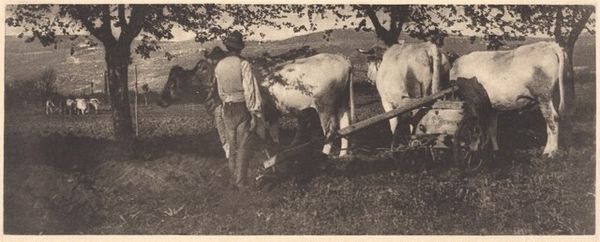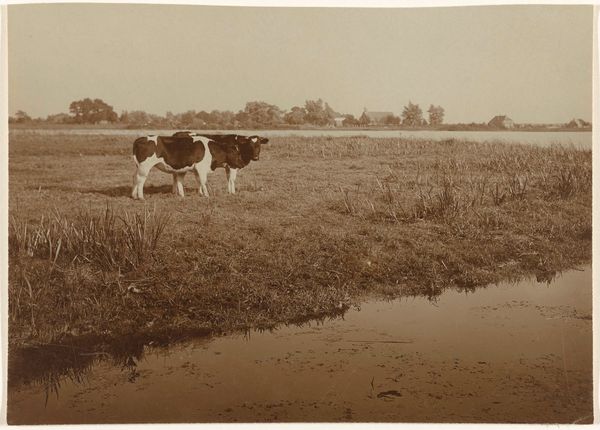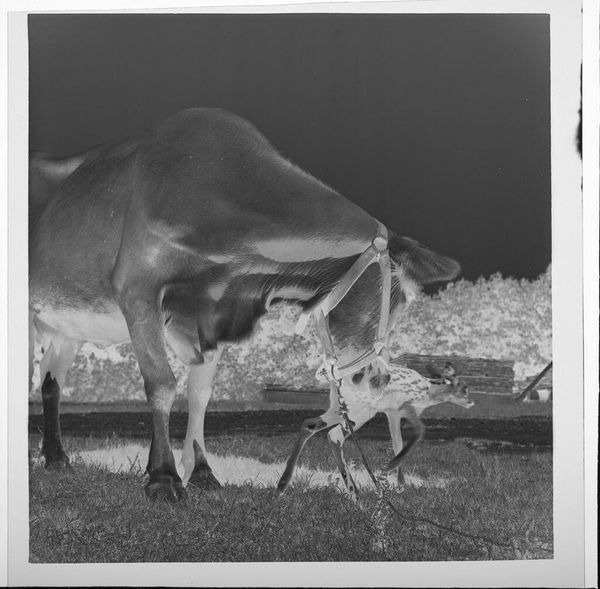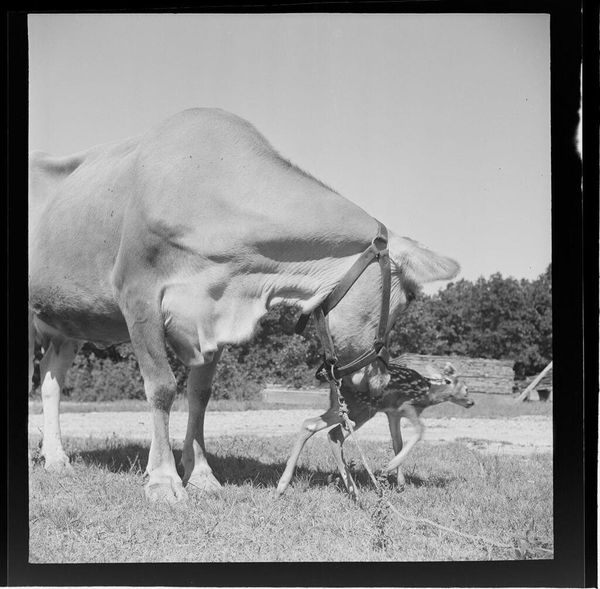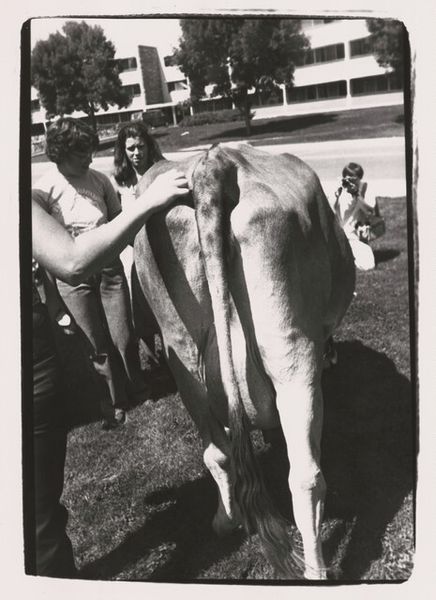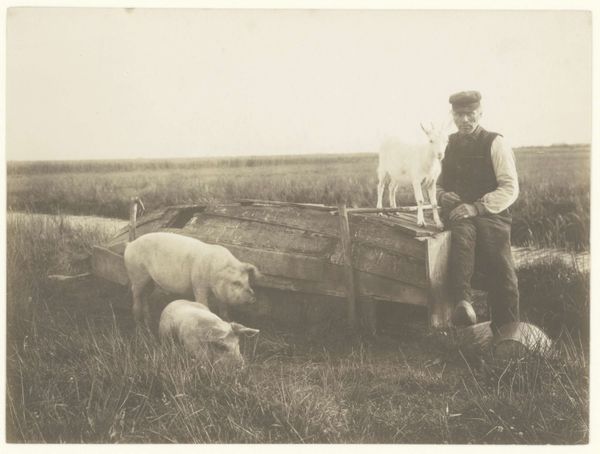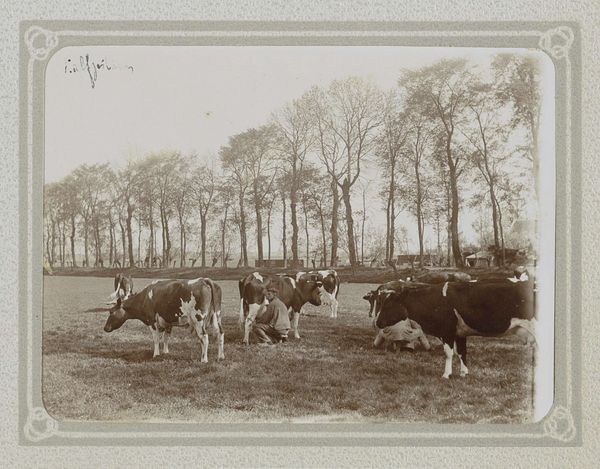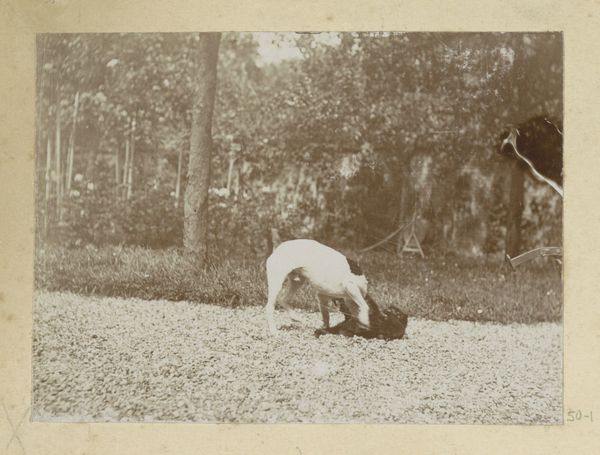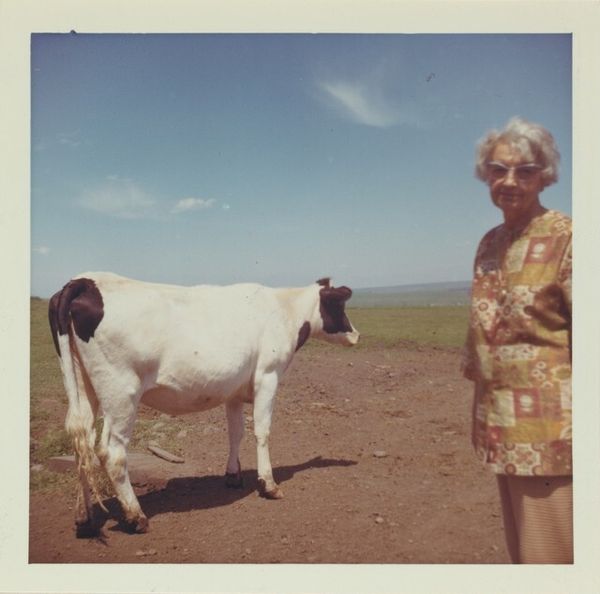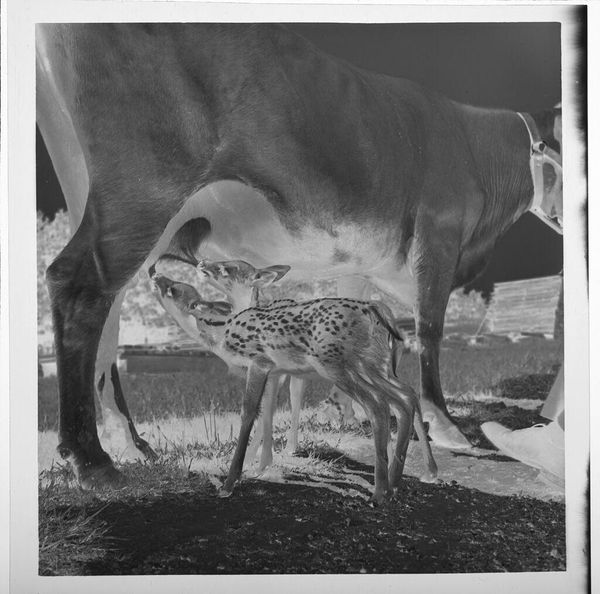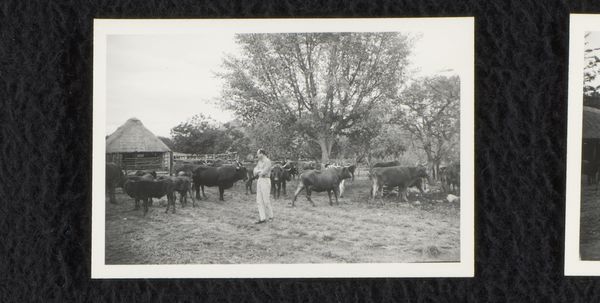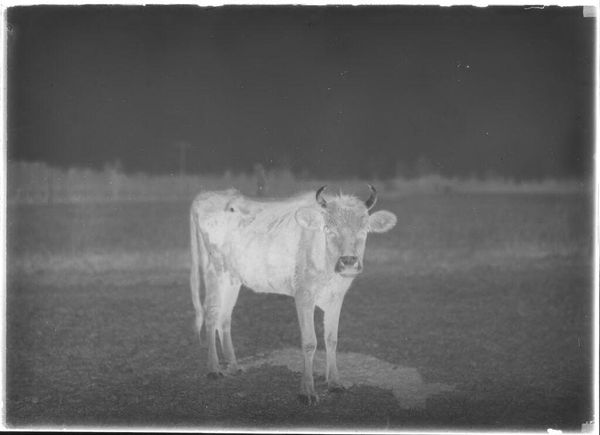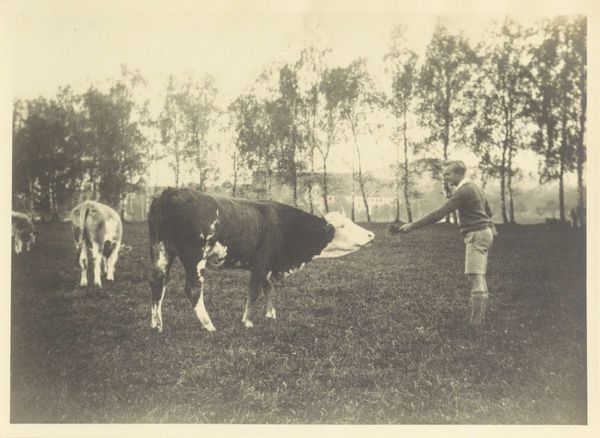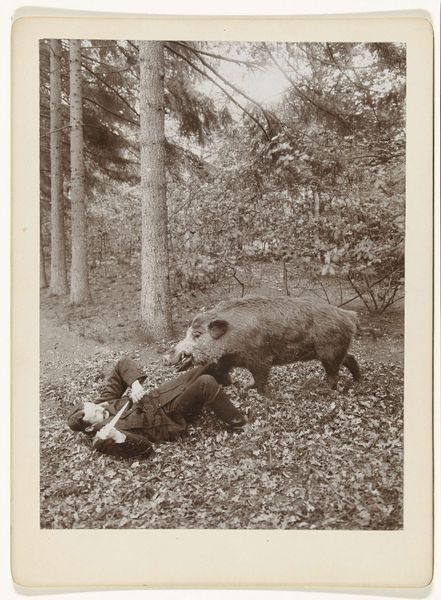
print, photography, gelatin-silver-print
#
print photography
#
dutch-golden-age
# print
#
landscape
#
outdoor photograph
#
photography
#
gelatin-silver-print
#
genre-painting
#
realism
Dimensions: height 170 mm, width 225 mm
Copyright: Rijks Museum: Open Domain
Editor: Here we have Richard Tepe's gelatin-silver print, "Man melkt een koe," dating roughly from 1900 to 1930. It’s a very pastoral scene. The composition is strikingly simple, focusing primarily on the figures and the immediate landscape. What formal elements stand out to you in this work? Curator: The interplay of light and shadow is particularly compelling. Note how the diffused light flattens the tonal range, emphasizing texture over form. The composition uses the cow’s body as a substantial mass, almost blocking the light, behind the man. This generates spatial tension. Observe the lines – the curve of the cow's back, the angles of the man's posture – creating a dynamic yet stable arrangement. It’s about these formal relationships, wouldn’t you agree? Editor: Absolutely, now that you point it out, I see it! It’s as if the artist orchestrated the lines to emphasize movement toward this large form, and it appears even more grounded and robust. How does this relate to other works of the Dutch Golden Age, as the metadata mention? Curator: While influenced, this departs from the classical structure of Golden Age paintings. Tepe's work embraces asymmetry. Also, notice that it is a print; it is therefore part of photography. The Dutch Golden Age tag seems out of place since this image has photographic materiality, right? The focus here is photographic, more so about recording texture than form, and this image also flattens and diffuses light which would be unseen during the Golden Age. Editor: Yes, that is quite interesting. I learned much about the interplay of form and structure and also photographic elements in this artwork. Thank you! Curator: It's been insightful for me, too. By focusing on structure, we understand visual languages; hopefully this enhances not just understanding but also our engagement with art in general.
Comments
No comments
Be the first to comment and join the conversation on the ultimate creative platform.
